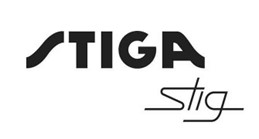A goal-den opportunity: Cole Palmer files UK trade mark application for shivering celebration
Cole Palmer has filed a UK trade mark application for his shivering celebration, marking an increasing development in the…
This case concerns an application by STIGA AB to register the following logo in the United Kingdom in respect of robotized lawn mowers, and related automation / remote control software and devices, and installation, maintenance and repair services:

The application was opposed in its entirety by Andreas Stihl AG & Co. KG (“opponent”) under Section 5(2)(b), 5(3) and 5(4)(a) of the UK Trade Marks Act 1994 on the basis of its earlier registrations for the mark ‘STIHL’ (see below) covering a range of goods and services including gardening equipment; lawn mowers in Class 7, computer programs and software applications in Class 9 and repair and maintenance of equipment, tools and accessories for use in forestry, agriculture, construction, cleaning and horticulture in Class 37.
The opponent included a copy of a decision issued by the EUIPO involving the same marks and parties. The Hearing Officer made clear that the EU decision was not binding and that the hearing officer would make a decision based on the evidence before them in the current proceedings.
The Opponent filed evidence of use demonstrating a very strong reputation and sales.
Despite a finding that the opponent’s earlier registrations covered goods and services which are identical with, or similar to all of the goods and services covered by the opposed application, the Hearing Officer found no likelihood of confusion when making a global assessment. This decision primarily resulted from a low degree of similarity between the respective trade marks, and therefore no risk of direct or indirect confusion. The opposition under Section 5(2)(b) was not successful.
Similarly, the opposition under 5(4)(a) also failed. The hearing officer said that the Opponent is in no stronger position under Section 5(4)(a) than it was under Section 5(2)(b). Whilst goodwill was established the signs were simply not similar enough to cause any deception on the part of the customers.
However, the strength of the reputation and evidence filed by the opponent in this regard in respect of the mark STIHL, was sufficient to establish reputation for the 5(3) claim and support a claim of enhanced distinctiveness.
Stiga attempted to rely upon a defence of due cause, but this was essentially dismissed by the hearing officer because the defence was not raised in the initial pleadings, instead it was raised for the first time only in the submissions filed by Stiga’s attorneys during the evidence rounds.
A link was established, and the hearing officer deemed that there would be an unfair advantage due to the significant reputation of the STIHL mark. The opposition was successful based on 5(3).
Key takeaways from this decision:
Wilson Gunn represented Andreas Stihl AG & CO. KG.
If you require any assistance in trade mark matters, please contact one of our attorneys.
Notifications